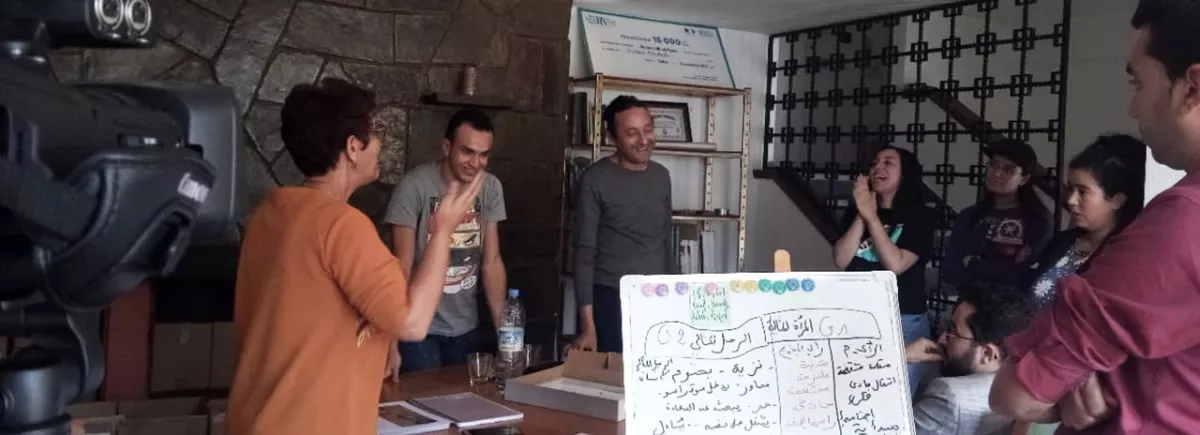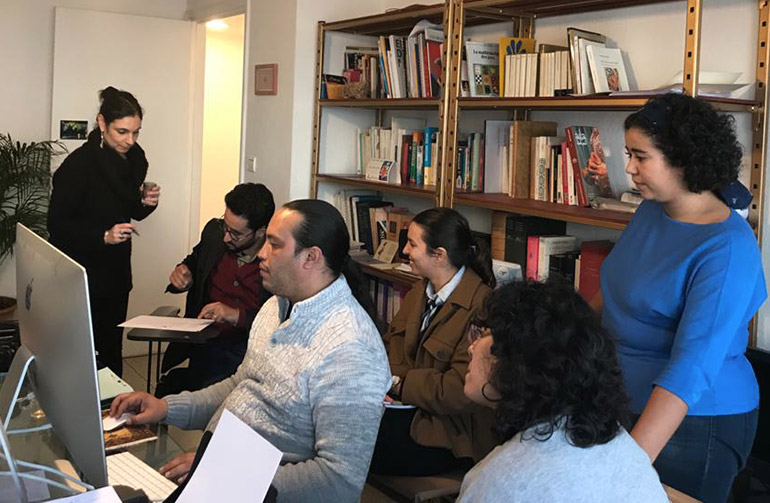
Gender equality at the Openchabab training courses
Related project
D-JilOne of the four Openchabab sessions was dedicated to this key issue. Interview with Kenza Sefrioui, project coordinator.
For as long as she can remember, Kenza Sefrioui has always been interested in gender equality. “I grew up witnessing the modern relationship of my parents, both lawyers, which contrasted sharply with the relationships of my friends’ parents”, she recalls. So dedicating an Openchabab training session to gender equality came naturally to the French-Moroccan journalist and publisher based in Casablanca: “This is a key issue in our society, which we encounter when working across many sectors: access to education, care, employment, to name a few”.
Openchabab, of which she is the coordinator, is a training platform focusing both on the dissemination of humanist values and on the sharing of new journalism tools, aimed at journalists and members of Moroccan community-based organisations.
The theoretical training component helped me to improve my knowledge.
Oumaïma Jmad is one of the 13 participants in this session devoted to gender equality, which took place in autumn 2019. For several months, this young woman studied the work of experts, both women and men, and undertook training in new journalism practices, which enabled her to “give something back” and produce content. A project coordinator with a feminist association at the time, the young woman, aged 27, acknowledged that she had learned a lot:
“The theoretical training component helped me to improve my knowledge. I was particularly impressed by Saïda Bajjou who shared her extensive first-hand experience in her session entitled “Acting against stereotypes”. The practical component was even more useful for me, because through the courses on storytelling, data-driven journalism and audio and video narration, I was able to convey and emphasise the figures and concepts in the reports we produce. This has made me a stronger social activist, allowing me to speak out now that I have the tools to do so.”

Openchabab is one of the 18 projects receiving D-JIL support. What these ambitious and innovative projects have in common is a desire to do things differently and to open up new perspectives for young people in the Arab world through topics that affect and concern them.
Co-financed by the European Union and supported by CFI, in partnership with the Samir Kassir Foundation (Lebanon), FMAS (Morocco), ERIM, formerly IREX Europe, (France) and Leaders of Tomorrow (Jordan), D-JIL fosters active citizenship and autonomy in young people in nine countries of the Arab world through online media.


